Revitalize with Moringa, the “miracle tree,” and tap into the natural world’s most potent sources of health and vitality. As the quest for natural health solutions intensifies, Moringa emerges as a frontrunner, celebrated for its remarkable energy-enhancing and wellness-promoting benefits. Dive into the wonders of this extraordinary plant and discover how it can be your daily source of rejuvenation and the ultimate pick-me-up.
Table of Contents
What is Moringa?
Moringa, scientifically termed Moringa oleifera, is a versatile plant recognized for its exceptional nutritional profile and extensive health advantages. Originating from the foothills of the Himalayas, this plant has a rich history steeped in traditional medicine across various cultures.
It boasts a nutritional bounty, containing an impressive array of vitamins, including A, C, and E, essential minerals such as calcium, potassium, and iron, as well as antioxidants like quercetin and chlorogenic acid. These nutrients collectively contribute to its reputation as a superfood, offering numerous health benefits.
Moringa is celebrated for its potential to boost energy levels without the typical crash associated with stimulants like caffeine. Its nutrient-rich composition fuels the body and helps combat fatigue effectively.
Moreover, the plant’s abundance of antioxidants and anti-inflammatory compounds aids in bolstering the immune system, protecting against illnesses, and promoting overall wellness.
Beyond these attributes, Moringa is recognized for its detoxifying properties, facilitating the elimination of toxins from the body and supporting internal balance. Additionally, research suggests its potential in managing stress and anxiety, offering a natural remedy for mental well-being.
The plant’s leaves, pods, seeds, and oil are utilized in various forms, including powdered supplements, teas, oils, and skincare products, making it a versatile addition to diets and wellness routines worldwide.
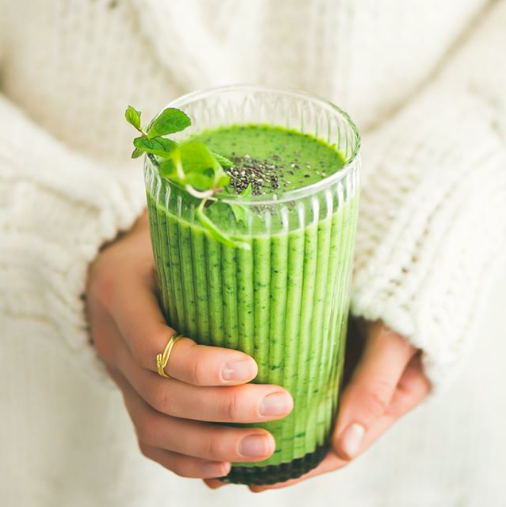
Health Benefits
- Nutritional Powerhouse: Moringa is packed with essential nutrients, including vitamins A, C, and E, calcium, potassium, and iron. This nutritional richness supports overall health and vitality.
- Boosts Energy Levels: Its nutrient-dense composition provides a natural energy boost, aiding in combating fatigue and promoting sustained vitality without the crash associated with caffeine.
- Immune System Support: The plant’s antioxidants and anti-inflammatory properties bolster the immune system, offering protection against illnesses and infections.
- Detoxification: Moringa’s detoxifying properties help eliminate toxins from the body, contributing to internal cleansing and promoting a healthier system.
- Stress and Anxiety Management: Studies suggest Moringa may assist in managing stress and anxiety levels, providing a natural remedy for mental well-being.
- Promotes Skin Health: Moringa oil, extracted from its seeds, is used in skincare products for its moisturizing and nourishing properties, contributing to healthier skin.
- Supports Digestive Health: The plant’s fiber content aids in digestion and can potentially alleviate digestive issues by promoting a healthy gut.
- Anti-inflammatory Properties: Compounds found in Moringa exhibit anti-inflammatory effects, potentially reducing inflammation and related discomfort.
- Heart Health: Some studies suggest that Moringa may help lower cholesterol levels and support heart health, though more research is needed in this area.
- Bone Health: The presence of essential minerals like calcium and phosphorus in Moringa contributes to bone health and may help prevent bone disorders.
These health benefits highlight the holistic advantages of incorporating Moringa into one’s diet and wellness routine. However, it’s essential to consult a healthcare professional before introducing new supplements or making significant dietary changes.
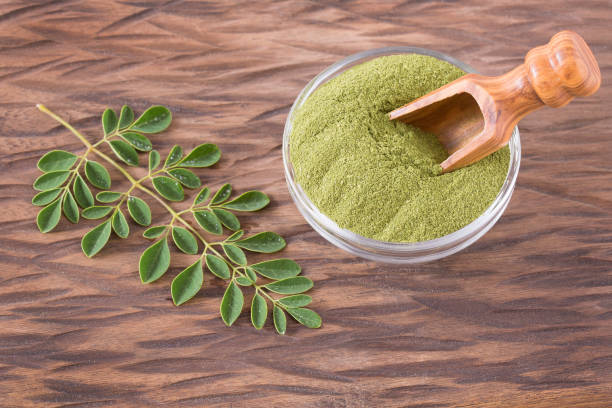
Energy Boosting Properties
- Nutrient-Rich Composition: Moringa is a powerhouse of nutrients, including vitamins, minerals, and antioxidants. These nutrients work synergistically to provide a sustained energy lift.
- Balanced Energy Release: Unlike caffeine or sugar-induced energy spikes, Moringa offers a balanced release of energy. Its nutrients fuel the body steadily, preventing sudden crashes.
- Vitamin C and Iron Content: The high levels of vitamin C and iron aid in oxygen transport and absorption, essential for energy production in cells. This contributes to improved stamina and vitality.
- Reduced Fatigue: Moringa’s nutrient density combats fatigue effectively. Regular consumption may help alleviate feelings of tiredness and promote alertness throughout the day.
- Adaptogenic Qualities: The adaptogenic nature of Moringa helps the body adapt to stressors, supporting overall energy levels by enhancing resilience to physical and mental strain.
- Blood Sugar Regulation: Some studies suggest that Moringa may help regulate blood sugar levels, preventing sudden drops that can lead to energy slumps.
- Natural and Sustainable Energy: Moringa provides a natural energy source without the reliance on stimulants, making it a sustainable option for long-lasting vitality.
- Suitable for Various Lifestyles: Whether used by athletes seeking endurance or individuals combating daily fatigue, Moringa’s energy-boosting properties cater to diverse lifestyles.
Incorporating Moringa into your daily routine, such as adding it to smoothies, teas, or meals, can harness these energy-boosting benefits and contribute to sustained vitality throughout the day.
Moringa in Various Forms
- Powdered Form: Moringa powder, derived from dried leaves, is a popular and versatile option. It can be easily added to smoothies, juices, soups, or sprinkled over foods like salads or yogurt. This form retains the plant’s nutritional potency and is convenient for daily consumption.
- Capsules and Tablets: For those preferring a more convenient method of intake, Moringa is encapsulated or compressed into tablets, offering a precise and measured dosage. This form is convenient for on-the-go use and ensures consistent consumption.
- Oil Extract: Moringa oil, obtained from the seeds, is prized for its various applications. It’s used topically in skincare routines for its moisturizing and nourishing properties. Additionally, it can be consumed for its nutritional benefits or used in cooking due to its high smoke point.
- Teas and Infusions: Moringa leaves are used to create teas or herbal infusions, offering a soothing and nutrient-rich beverage option. Steeping the leaves in hot water allows for the extraction of essential nutrients and antioxidants, providing a refreshing and health-boosting drink.
- Whole Leaves and Pods: Some prefer to use fresh Moringa leaves or pods in cooking. The leaves can be incorporated into salads, stir-fries, or soups, adding a nutritional punch to meals. The pods, when young and tender, are edible and can be used similarly to green beans.
- Extracts and Tinctures: Moringa extracts or tinctures concentrate the plant’s beneficial compounds into liquid form. These are often used in medicinal applications or as supplements for more targeted health benefits.
Each form of Moringa offers its own set of advantages, allowing individuals to choose the method that best suits their preferences and lifestyle, while still reaping the nutritional and wellness benefits this remarkable plant provides.
Culinary Uses
- Leafy Goodness: Fresh Moringa leaves, known for their nutritional richness, can be used in salads, stir-fries, omelets, or soups. They add a mild, earthy flavor while boosting the nutritional content of the dish.
- Nutrient-Boosting Powder: Moringa powder easily integrates into culinary creations. It can be sprinkled onto foods like yogurt, oatmeal, or smoothies for a nutritional kick without altering taste significantly.
- Teas and Infusions: Moringa leaves make an excellent base for herbal teas or infusions. Steeping the leaves in hot water allows the extraction of nutrients, resulting in a refreshing and health-boosting beverage.
- Flavorful Seasoning: Ground Moringa leaves, akin to a seasoning, can be used to impart a subtle, earthy flavor to dishes. It pairs well with savory dishes like sauces, dips, or roasted vegetables.
- Creative Snack Additions: Incorporate Moringa into snack recipes by adding it to energy bars, granola mixes, or homemade trail mixes. It boosts nutritional content while enhancing the flavor profile.
- Baked Delights: Moringa powder or finely ground dried leaves can be added to bread, muffin, or cookie recipes, infusing these baked goods with added nutrients and a unique touch.
- Traditional Dishes: In regions where Moringa is part of traditional cuisine, it’s utilized in various local recipes such as curries, stews, or rice dishes, offering both flavor and nutrition.
- Smoothie Enhancer: Blend Moringa powder with fruits, vegetables, or plant-based milk for a nutritious and energizing smoothie. It blends seamlessly, complementing the flavors.
By integrating Moringa into daily cooking routines, individuals can elevate the nutritional content of their meals while enjoying its subtle, earthy taste in a wide range of culinary creations.
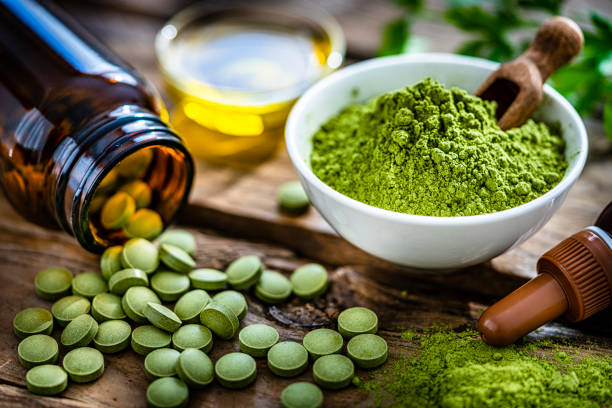
Growing and Harvesting
- Climate and Soil Conditions: Moringa thrives in warm, tropical climates but can also grow in subtropical regions. It prefers well-draining soil and can withstand dry conditions, making it a resilient plant.
- Propagation: Moringa can be grown from seeds, cuttings, or direct planting. Seeds are commonly used and should be planted in well-prepared soil, with regular watering until germination occurs.
- Spacing and Planting: When planting Moringa seeds, spacing is crucial. Seedlings should be planted at least 3 meters apart to allow for their eventual growth, as Moringa trees can reach considerable heights.
- Watering and Maintenance: Young Moringa plants require regular watering until established, but mature trees are drought-resistant. Regular pruning helps maintain shape and encourages new growth.
- Harvesting Leaves: Moringa leaves can be harvested once the plant is around 60-90 days old. Regular harvesting encourages bushier growth. Leaves can be plucked individually or pruned in clusters.
- Seed Harvest: Moringa pods develop after flowering and can be harvested once they mature and turn brown. Pods are typically harvested by hand and left to dry before extracting the seeds.
- Preservation: Moringa leaves can be air-dried in a shaded area or using low heat to preserve their nutritional value. Seeds should be stored in a cool, dry place to maintain viability.
- Sustainability Practices: Sustainable cultivation methods, such as organic farming practices and efficient water usage, are encouraged to ensure the long-term viability of Moringa cultivation.
- Global Impact: Moringa’s ability to grow in diverse climates makes it a valuable resource in regions where malnutrition is prevalent. Its fast growth and nutritional density contribute to its use in combating food insecurity.
- Commercial Cultivation: Due to its nutritional benefits, Moringa is commercially cultivated for various purposes, including the production of supplements, teas, skincare products, and food additives.
Understanding the specific requirements for growing and harvesting Moringa ensures successful cultivation and utilization of this versatile plant, benefiting both local communities and global initiatives for better nutrition and sustainable agriculture.
Side Effects and Precautions
- Digestive Upset: In some individuals, consuming Moringa in large quantities may lead to digestive issues like stomach upset, diarrhea, or nausea. Starting with smaller amounts and gradually increasing intake can help avoid these issues.
- Blood Sugar Interactions: Moringa might lower blood sugar levels. Individuals with diabetes or those taking medications to lower blood sugar should monitor their levels closely when incorporating Moringa into their diet to prevent hypoglycemia.
- Blood Pressure Regulation: Moringa may have a hypotensive effect, potentially lowering blood pressure. Individuals on blood pressure medications should consult a healthcare professional before consuming Moringa to avoid interactions.
- Anticoagulant Effects: Some studies suggest that Moringa has anticoagulant properties. Individuals on blood-thinning medications should use Moringa cautiously to prevent potential interactions.
- Pregnancy and Breastfeeding: Limited research exists on Moringa’s safety during pregnancy and breastfeeding. It’s advisable for pregnant or breastfeeding individuals to consult a healthcare provider before using Moringa supplements.
- Allergic Reactions: While rare, allergic reactions to Moringa are possible, especially in individuals sensitive to plants in the same botanical family, such as mustard, cabbage, or broccoli. Allergies might manifest as skin rashes, itching, or respiratory issues.
- Toxicity Concerns: The roots and extracts of certain parts of the Moringa tree contain potentially harmful substances and should be avoided.
- Dosage and Moderation: Adhering to recommended dosages and avoiding excessive consumption of Moringa supplements is crucial to prevent potential adverse effects.
- Individual Sensitivity: Individuals react differently to supplements. It’s essential to monitor personal reactions and discontinue use if any adverse symptoms arise.
- Consultation with Healthcare Provider: Individuals with pre-existing medical conditions or those taking medications regularly should seek advice from a healthcare professional before adding Moringa to their regimen.
Being aware of these potential side effects and taking necessary precautions ensures safe and responsible use of Moringa, allowing individuals to harness its benefits while minimizing any associated risks.
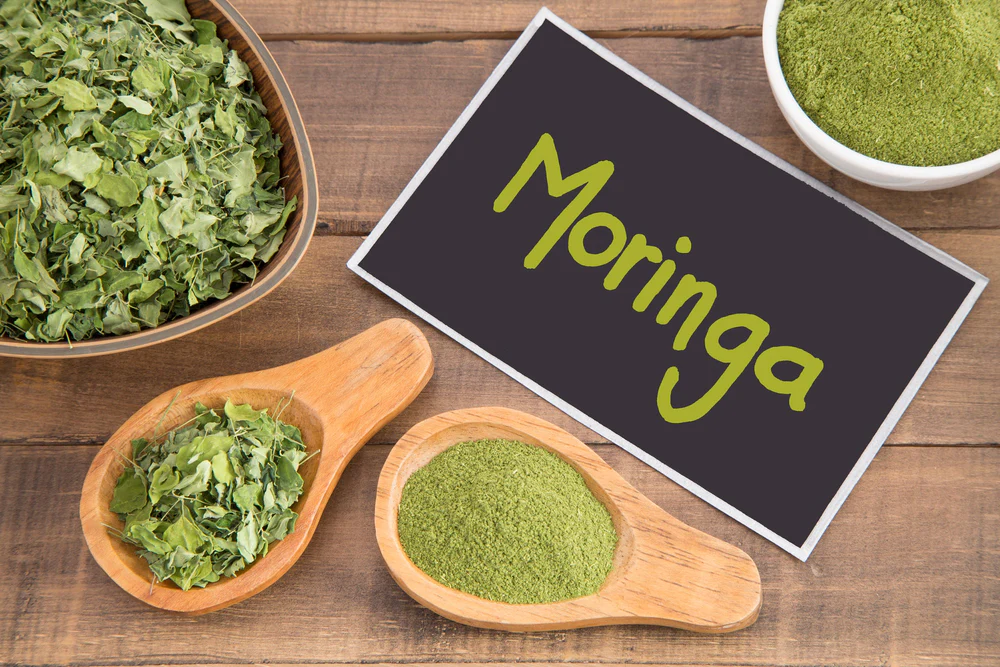
Source to Get Organic Moringa Leaf Powder Capsules
Conclusion
In conclusion, Moringa stands as a nutritional powerhouse, offering a multitude of health benefits and serving as an excellent energy booster. Its versatility in various forms makes it accessible to incorporate into daily routines, providing a natural and sustainable means of revitalization.
FAQs
- Can Moringa be consumed every day?Yes, in moderate amounts, Moringa can be consumed daily as part of a balanced diet.
- Are there any age restrictions for Moringa consumption?Moringa is generally safe for consumption across different age groups, but consulting a healthcare professional is advisable, especially for children and the elderly.
- How quickly can one experience the benefits of Moringa?The timeframe for experiencing the benefits of Moringa varies among individuals, but consistent consumption may lead to noticeable improvements in energy levels and overall well-being within a few weeks.
- Can Moringa supplements replace a balanced diet?While Moringa supplements offer concentrated nutrients, they should complement a balanced diet rather than replace it entirely.
- Is it safe to consume Moringa during pregnancy?Pregnant individuals should consult healthcare providers before consuming Moringa to ensure it aligns with their specific health needs.

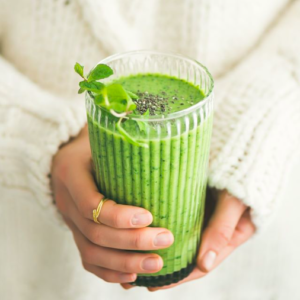



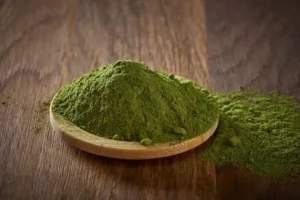
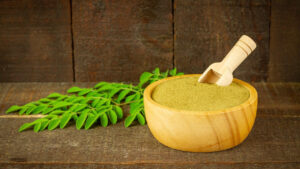
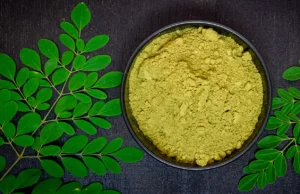

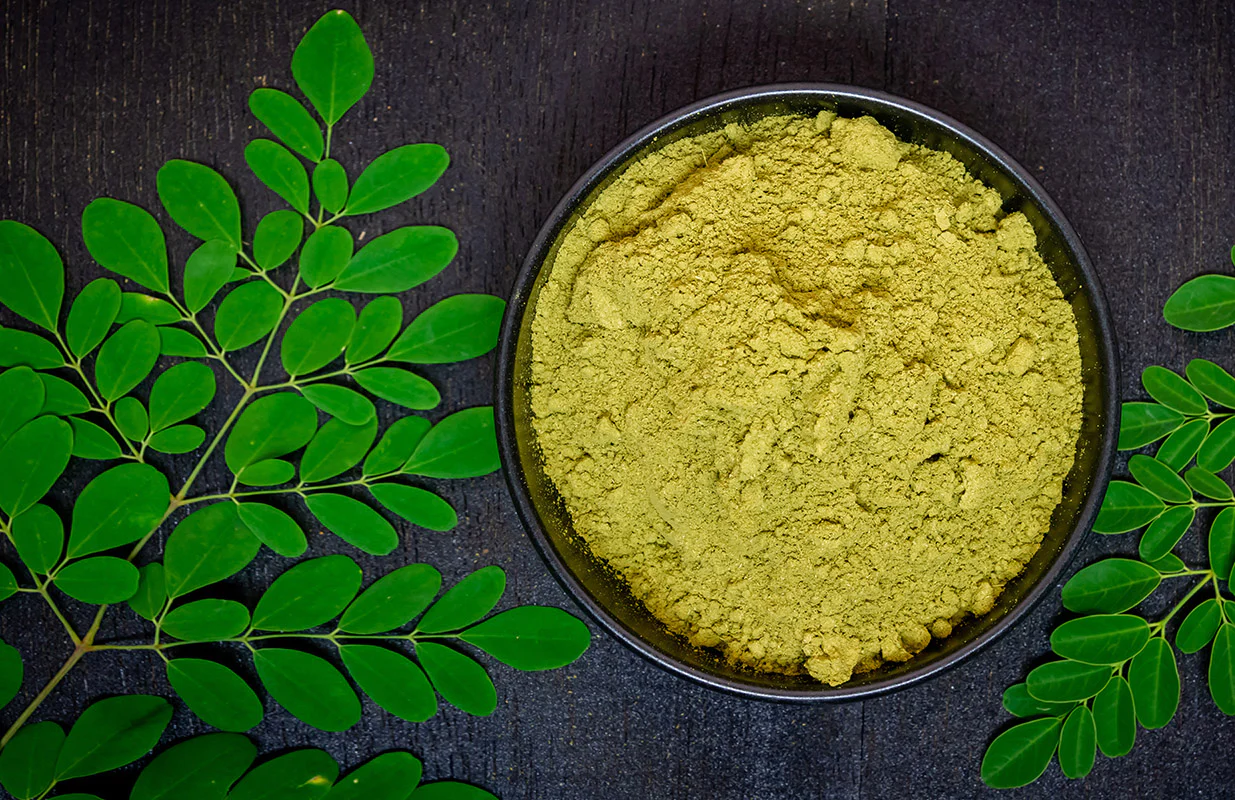
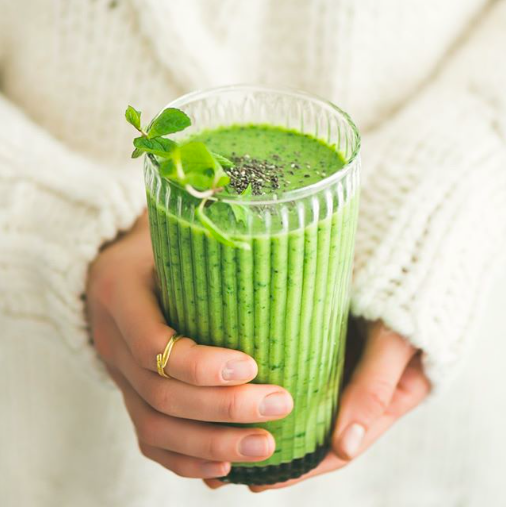
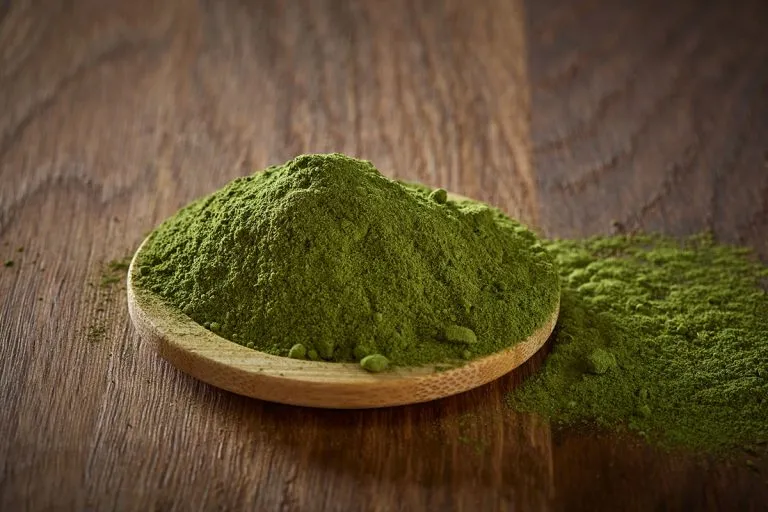
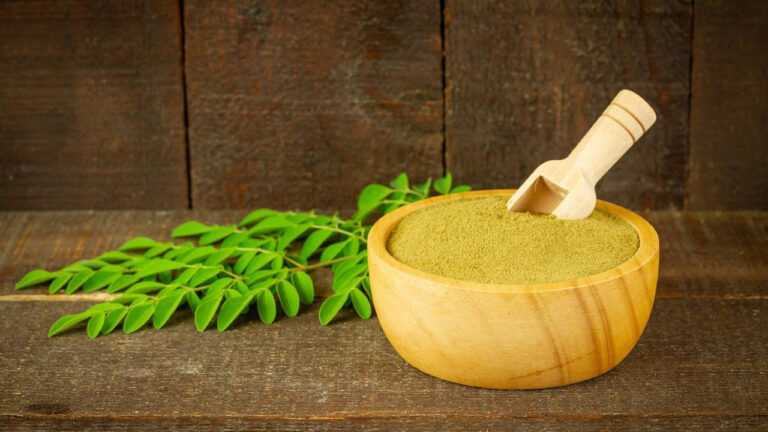




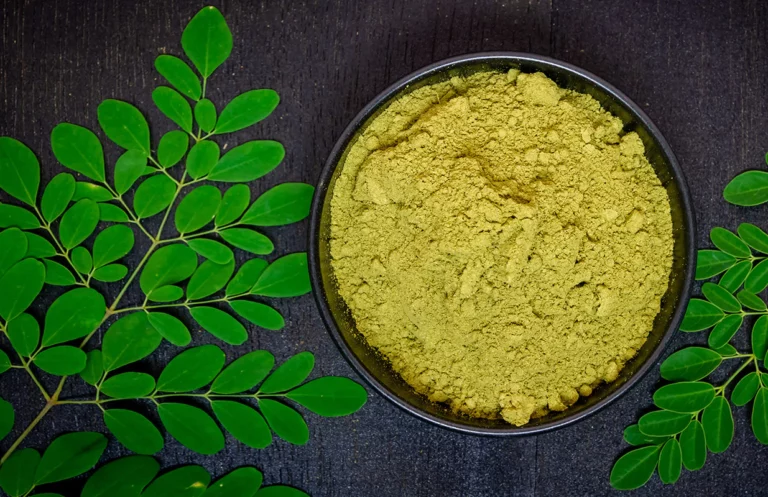
+ There are no comments
Add yours